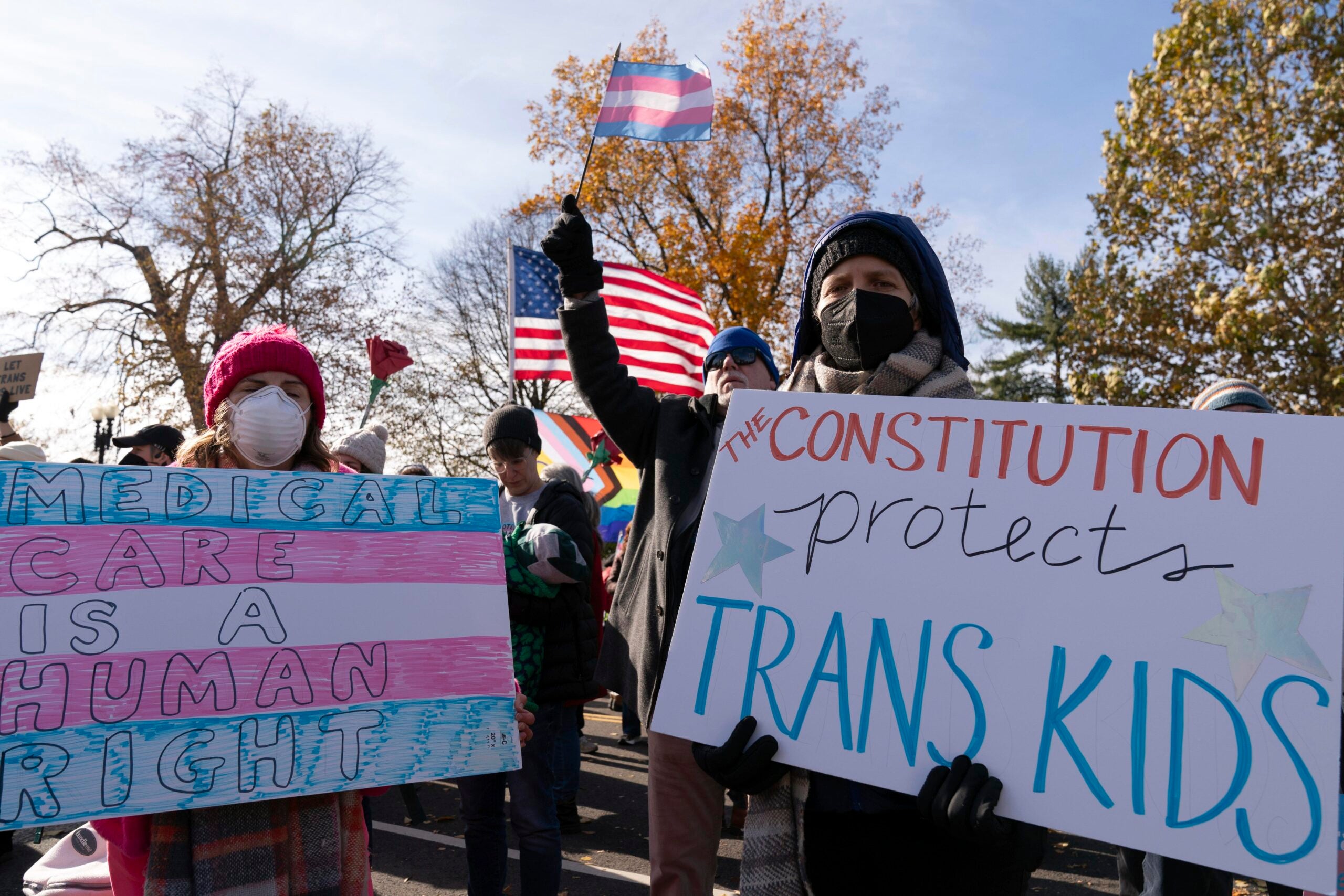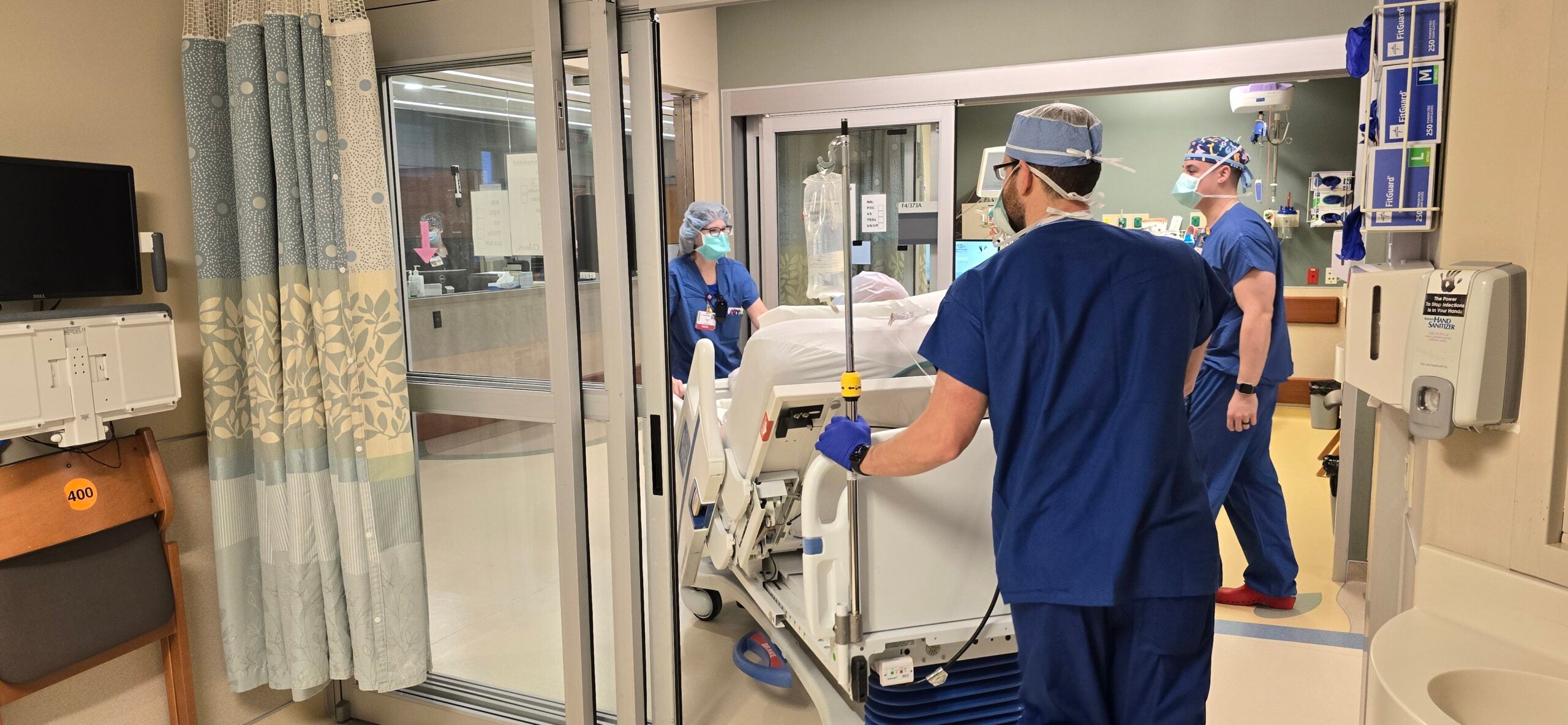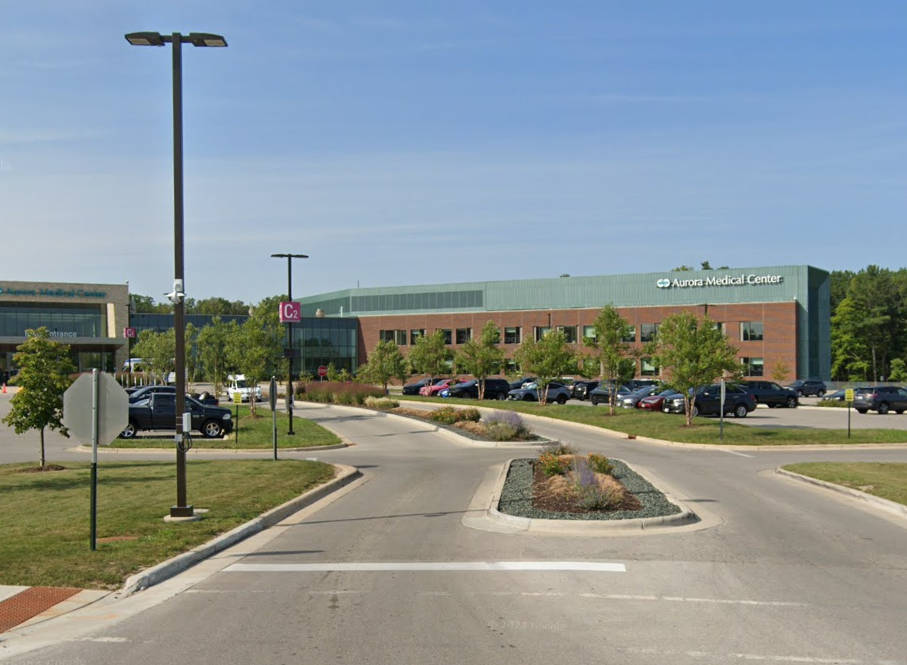The Wisconsin Hospital Association is running a public service announcement featuring former state governor and U.S. health official Tommy Thompson urging people who need medical attention to get it.
In the video, Thompson commends both Wisconsin residents and hospitals for their handling of the COVID-19 pandemic so far. He also encourages people to “keep up the good work” by continuing to practice social distancing and hand-washing.
He caps off the video by stressing that people shouldn’t put off necessary medical care, and that hospitals and clinics are “clean, safe and ready to take care of you.”
News with a little more humanity
WPR’s “Wisconsin Today” newsletter keeps you connected to the state you love without feeling overwhelmed. No paywall. No agenda. No corporate filter.
“I just want to tell people to go on in, that they will be safe. The hospitals are secure, and they will take good care of you,” said Thompson during a telephone interview with WPR.
He said he hasn’t needed medical care during the pandemic and hasn’t been tested for COVID-19.
One poll conducted by Morning Consult and the American College of Emergency Physicians in mid-April found that nearly one-third of Americans had avoided visiting the doctor because of concerns about contracting COVID-19, and had even resisted going to the emergency room.
Reluctance to seek care can be chalked up to fear, stoicism or both. One 32-year-old Wisconsin man endured stomach pain for six months as he tried to convince himself it was nothing.
“I’m one of those people who is like, ‘I don’t want to bother people when they’re just going to tell me it’s a tummy ache.’ It’s probably nothing, it’s just in my head,” said Bob, who requested his full name not be used.
The pain, which started in November, got worse in February. That’s when Wisconsin reported its first positive case of COVID-19. As the father of two young children, Bob was concerned about bringing home the virus, or spreading it to hospital or clinic patients if he unwittingly carried it and didn’t know.
“I try to be a very caring person to my fellow humans. I’m doing everything I can to make sure people stay healthy. That includes my family as well,” said the Appleton man.
Bob has an endoscopy scheduled and will be required to be tested for COVID-19 before the outpatient procedure is done.
Delayed medical care could potentially hurt patients, and it’s definitely affecting hospitals across the country. April was the worst month ever for hospital finances, according to a report put out by business consulting firm Kaufman Hall.
The largest decline was due to delayed or canceled elective procedures. The federal government had advised that hospitals put off nonessential surgeries to make room for COVID-19 cases.
The report also estimated that emergency department visits dropped 43 percent year-over-year.
In-person doctor visits and elective surgeries are gradually resuming around the state at some hospitals. The emergency department at UW Hospital in Madison is starting to see more patients, after visits plunged following the start of the pandemic.
“We had a few examples of people who, if they would have followed their gut instinct and come in and not have been scared, would have likely had different outcomes,” said Dr. Jeff Pothof, UW Health’s chief quality officer.
He said cardiologists at UW Health have patients who didn’t seek care when they had chest pain and later found out they had suffered a heart attack.
Hospitals stress that they are safe even though they’re caring for COVID-19 patients. They have strict procedures to keep the virus from spreading to others.
“We’re prepared,” said Western Wisconsin Health CEO Alison Page. “Our building is locked down. Our building is safe. Everybody is masked. We’re cleaning the living heck out of this place, multiple times a day. We’ve got air circulators going, cleaning the air in the building.”
Wisconsin Public Radio, © Copyright 2025, Board of Regents of the University of Wisconsin System and Wisconsin Educational Communications Board.







